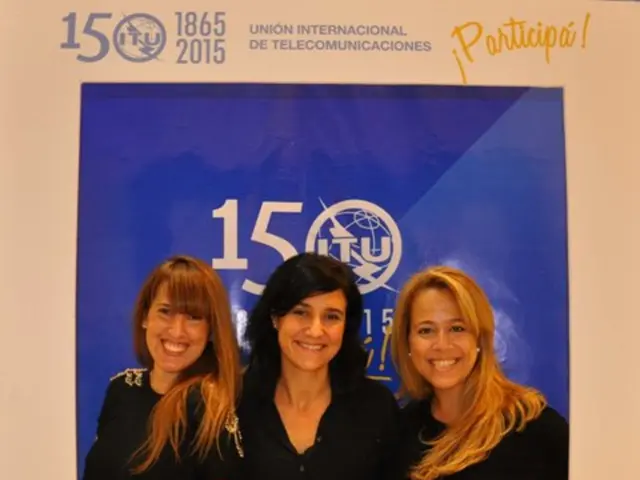Fostering Neurodiverse Future: Parents of Tomorrow Adopting Personalized Learning Trajectories
Embracing the Neurodiverse Revolution: Preparing for a New Era in Parenting and Education
The concept of neurodiversity is no longer hidden in the shadows of educational dialogue – it has moved front and center, driving a transformative movement that redefines human intelligence, learning, and success. As the next generation of parents navigates this shift, they're poised to lead a cultural overhaul by advocating for individualized learning paths based on their child's unique needs, not the system's expectations.
Unraveling the Puzzle: What Exactly is Neurodiversity?
Neurodiversity refers to the distinct variations in human cognitive processes and brain functions. Conditions like ADHD, autism spectrum disorder (ASD), dyslexia, sensory processing disorder, anxiety, and even exceptional talent fall within this neurodiverse spectrum. Instead of seeing these differences as weaknesses or flaws, it's time to understand, nurture, and incorporate them into our lives.
Just as biodiversity serves as the foundation for a healthy ecosystem, neurodiversity fosters human creativity, empathy, and innovation.
The Perfect Storm: Reasons for Change
Several cultural, scientific, and technological shifts coalesce to make individualized learning paths not only viable but essential:
Greater Understanding: As our knowledge of the brain deepens, diagnoses of neurodivergent conditions are on the rise, leading to a growing army of empowered parents and educators demanding better support systems.
Technology Transformation: Advances in AI and adaptive learning platforms are tailoring content to each child's pace, strengths, and challenges, shifting learning from a niche pursuit to a mainstream necessity.
COVID-19's Wake-Up Call: The pandemic disrupted traditional education and highlighted the importance of diverse learning environments. Many parents discovered their child thrives outside the classroom, inspiring a shift towards flexible, interest-driven education.
Generation G: Younger generations are more inclusive, mental health aware, and open to diversity. This evolving mindset will serve to break down barriers and embrace neurodiversity.
Parenting in the Spotlight: The Role of Tomorrow's Parents
Tomorrow's parents will be proactive, embracing observation, curiosity, and customization to meet their child's unique needs. They'll develop a broader definition of success, shifting focus from academic achievement to creativity, empathy, problem-solving, and resilience.
Adapting Definitions of Success
Parents will reframe success, celebrating children's strengths rather than dwelling on perceived shortcomings. Embracing this mindset will encourage kids to lean into their assets and diminish feelings of "less than."
Building Customized Learning Sanctuaries
In place of traditional schooling, parents will craft hybrid educational approaches that prioritize flexibility, passion, and personalized growth:
Alternative Learning Communities: Micro-schooling, pod learning, and other collaborative learning environments with adaptable curriculums allow children to explore their interests and build lasting connections.
Passion-Focused Learning: Encouraging kids to delve deep into their passions encourages a love of learning and fosters a more engaged, motivated mindset.
In-Home Enrichment: Gamified learning platforms and hands-on activities customized to a child's cognitive profile transform the home into a fun and enriching learning environment.
Education will no longer be confined to classrooms – it will leap into gardens, maker spaces, online communities, and immersive virtual environments.
Leveraging Technology for Empowerment
AI tutors, cognitive training games, and emotion-sensing wearables will become widespread. Rather than relying on technology to replace human interaction, these tools will serve as extensions of caring teachers and parents, providing valuable insights to enhance personalized learning strategies.
Imagine a world where:
- An app identifies when a child is on the brink of a meltdown, allowing parents to intervene before it happens.
- A digital tutor adjusts its tone and visuals to match a child's sensory preferences.
- Your child works alongside other neurodiverse peers on a global scale, building science projects that turn dreams into reality.
This future isn't just possible – it's right around the corner.
Speaking Up and Embracing Inclusion
Tackling neurodiversity isn't just about parenting – it's about advocacy. Tomorrow's parents will use their voices to push for broader systemic change.
Inclusive Curriculum: Insisting on history, literature, and science content that reflects diverse minds and experiences.
Trainer Training: Advocating for all educators to be equipped with neurodiversity-informed pedagogy.
Policy Reform: Supporting legislation that funds alternative education models and enforces anti-discrimination protections in schools.
In essence, tomorrow's parents will lead the charge in redefining what equitable education looks like – from the ground up.
Every Word Matters
Words carry weight, and the words we use not only reflect how we view someone or something but can also shape our attitudes and behaviors. Tomorrow's parents will be mindful of the language they use, refusing to label children as lazy when they struggle with executive function or call them weird because they process social cues differently.
Terms like "twice-exceptional," "sensory-seeking," or "hyperfocus" will become part of everyday family vocabulary, fostering an environment of empathy, adaptability, and curiosity.
Shaping the Next Generation: A Race of Confident, Self-Aware Learners
Children raised in a world that celebrates neurodiversity will embark on their adult lives equipped with self-awareness, self-advocacy skills, and confidence in their unique learning style. They'll be better prepared to navigate the workforce, relationships, and personal growth without the baggage of feeling like they're falling short.
And perhaps most importantly – they'll be kinder, more accepting individuals who recognize the strength in diversity.
Conclusion: Tomorrow's Classrooms are Neurodiverse, and That's a Good Thing
Tomorrow's parents won't shape their children to fit society's mold – they'll craft empowering ecosystems designed to unlock each child's unique potential. By embracing neurodiversity, they'll cultivate a new generation of learners who are more adaptable, empathetic, and ready to face the complex challenges that lie ahead.
Neurodiversity is not a hurdle to overcome – it's an untapped resource waiting to be explored. And the parents of tomorrow are ready to answer the call.
- Science and technology will play a significant role in individualized learning paths for neurodivergent children, with AI, adaptive learning platforms, and cognitive training games tailoring content to each child's needs and strengths.
- Personal growth and self-development will be key focuses for parents in the future, as they reframe success beyond academic achievement to include creativity, empathy, problem-solving, and resilience.
- Mental health awareness and advocacy will be essential for parents, as they speak up for inclusive curriculums, educator training, and policy reform to support neurodivergent children.
- Career development opportunities will expand for neurodivergent individuals as they grow up in a world that celebrates their unique strengths and learning styles, leading to a more diverse and creative workforce.
- Education will be transformed, transitioning from traditional classroom settings to encompass alternative learning communities, passion-focused learning, in-home enrichment, and embracing neurodiversity in science, health-and-wellness, and education-and-self-development.







